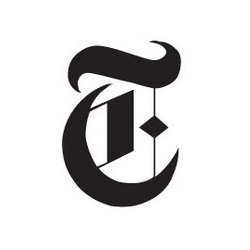 Political ad, or independent journalism? That’s the crux of the issue in the hot debate between news organization The New York Times and social media platform/turned publisher Facebook.
Political ad, or independent journalism? That’s the crux of the issue in the hot debate between news organization The New York Times and social media platform/turned publisher Facebook.
Earlier this spring, Facebook – under intense scrutiny to fix the fake news torrent on its site and its role in the Russian election meddling – enacted a new policy that managed to lump legitimate news organizations under the banner of political advertisers.
Some are claiming this is much ado about nothing. But here’s the problem. As Moses explained in a previous article, many news publishers do pay to boost some of their news posts, a common practice now that Facebook has forced a “pay-to-play” model on brands seeking to reach their audience.
“It requires news articles about political issues to be included in its political ads archive when the publisher pays to promote them in the news feed,” writes Lucia Moses in Digiday. “Publishers worry the policy will conflate journalism with traditional political advertising.”
As Moses explains, the new policy “gets to the very essence of independent journalism.”
“It also comes at a time when news organizations face a dearth of public trust and a president who’s especially hostile to the press,” she continues. “Seven organizations representing journalists and media executives from outlets around the world signed a letter protesting Facebook’s policy.”
Because they pay to boost some of their posts (many of which are, naturally enough, political in nature), they are now labeled “political advertisers.” So real, legitimate reporting on political topics gets flagged as political ads. Clearly, that doesn’t bode well for a free and open press, and media voices are objecting loud and clear.
“As publishers have increasingly found their voice in criticizing Facebook out loud, few have been more vocal than [NYT’s Mark] Thompson, who carries a lot of weight as the leader of a storied journalistic institution,” Moses writes.
“In June,” she continues, “Thompson gave a speech in which he described Facebook’s policy of labeling news as political ads as ‘a threat to democracy.’ A few days later, he sparred with Facebook’s head of global news, Campbell Brown, during a panel discussion over the same issue, accusing Facebook of playing into the hands of enemies of high-quality journalism.”
Lest anyone believe that Facebook still considers itself “just a platform” and therefore somehow above the fray on this, consider its recent efforts to create a partnership between social and traditional media to launch original news programs.
So we are back to the fox watching the hen house, in a way. Who will monitor FB’s news – and potentially flag it as political ads? The whole thing is a mess. Publishers – including the New York Times – have walked away from Instant Articles, realizing they were losing traffic without any kind of appreciable revenue. Now, if they want to boost their own content – news content – they risk being flagged as political ads. Meanwhile Facebook is creating its own party to create “news,” and you’re probably not invited.
“Other publishers, while they’ve been forced to diversify their audience sources, still depend on Facebook for traffic and want to be part of new programs like its Watch news shows and are afraid to speak publicly against the platform for fear of retribution,” Moses notes.
This is a train wreck unfolding in slow motion for journalism and independent news organizations.
